- Home
- Helen Dunmore
A Spell of Winter Page 8
A Spell of Winter Read online
Page 8
But snow had covered everything up. It clung in clots and folds, wiping away the scars of raw earth where Mr Bullivant was digging, landscaping, restoring. He knew how the park would look one day, when the torn earth had healed over and the trees had grown. He knew how the skin of the lake would crinkle under a summer breeze, and strands of weeping birch would touch the water. I looked down towards the low, frozen swamp where Mr Bullivant’s imagination sailed. I wished I could look forward, as he did.
‘What’s wrong with the pair of you?’ I heard Kate say. ‘You live backwards, as if there’s no tomorrow.’
No one else thought much of what Mr Bullivant was doing, but because he was rich they went along with it even though they didn’t understand the vision that drove him. He was money. He brought masons and joiners and carpenters down by train, each the cream of his trade, but there was work for local men under them. Then there was feeding the men, and furbishing up a couple of cottages for them to live in while the work went on. Fires had to burn in every room in Ash Court night and day, to dry out the new plaster. A chimney place was opened up and the skeletons of a dozen starlings came tumbling out of the black, blind space. The sticky black soot had to be swept, and every bit of the wood panelling covered in dustcloths until it was done.
There was digging in cartload after cartload of manure where the rose beds would be, and preparing the ground for a new orchard. Where the old turf had grown coarse with mares’ tails, dandelion and fat hen he was planning a new brilliant sheet of green. He saw sun rippling on the blossom of full-grown cherry trees, while we saw only trampled ground and little stubs of new timber wired round against the deer. There was mud everywhere. I’d never seen so much mud and machinery.
‘This is my battlefield,’ said Mr Bullivant, when half the seasoned oak for the treads of the new staircase arrived in swilling rain and got stuck in the churned-up drive. He went out in his rain-cape to stand at the horses’ heads, urging them on as they steamed and strained and mud sucked at the wheels. In the village the men said how he’d looked, rain streaming off him, showing his teeth as he laughed. He was a mad bugger, but he knew what he wanted.
He knew what he wanted and he knew how to carry on wanting it, even when the house and park looked worse than they had done before he ever touched them. I had never wanted anything that much.
‘Do you want to see the statue? I’ll fetch a broom and knock off the snow.’
He’d been clearing away the tangle of scrub and brambles himself, he told us. He’d seen enough of the sculpture to guess at its quality, and he didn’t want the workmen knocking it about. There were only a couple of people in the country with the expertise to restore it –
‘I’ll have them down in the spring. The whole pumping system will be clogged with earth. I’ve tried to find out how long it’s been left to rot like this, but no one knows.’
‘I’ve never heard of there being a fountain here,’ said Rob.
‘It’s been here a hundred years, I’d say. My best bet is that someone saw it on the Grand Tour and took a fancy to it. I’ve been looking up the records. I haven’t found anything yet, but it’ll be recorded somewhere, in the accounts or the steward’s books. I doubt if they ever knew what they’d got hold of. They’d have sent it by sea from one of the Italian ports. Trieste, perhaps. A lot of stuff came through Trieste. It’ll take a while to get it properly dated.’
He went off to fetch the broom. Rob stamped his boots; we’d been standing in the snow.
‘Think he’d mind if I went off to the stables?’
‘Rob, you promised you wouldn’t leave me with him.’
‘Yes, but you like this sort of thing. Am I supposed to stand around all afternoon while he scrapes snow off some old statue that’s been buried for a hundred years? And a good thing too if it has.’ He dug his hands in his pockets and looked at me with a teasing smile, the way he always did when he wanted to make me do something. Rob had to get his own way, no matter how small the issue. Mr Bullivant had a new hunter, brought home two weeks ago, and Rob hadn’t seen it yet. He couldn’t wait to go and torture himself with the sight of what we could never buy.
‘Mind if I go and have a look at Starcrossed?’ he asked when Mr Bullivant came back, carrying a broom and a soft handbrush.
‘No, of course not. You go. Tommy will tell you all about him.’
‘It’s just that I’ve heard such a lot about him already.’
Rob was putting it on again. Eager, boyish, apologetic. In another minute he’d be calling Mr Bullivant ‘sir’, I thought, irritated. Anything to get what he wanted. But horses were just things Mr Bullivant had because he needed them, and he had Starcrossed because it would never occur to him to buy anything but the best, whether it was brick or horseflesh. He’d never go down to the stables after dinner and spend hours saddle-soaping tack, just to be within the smell and touch of the horses, and to hear the sudden clattering stir of their hoofs. Mr Bullivant rode in the same way as he organized his stables; competently, without much interest. He wouldn’t love the nerviness of the horse as Rob would. He wouldn’t dream of flying over fences, or the way the horse danced on the cobbles with its ears pricked forward.
I thought of Kate’s phrase. If I had the arranging of things … she’d say, and tell us how the world would run differently and better then. If I’d had the arranging of things, Rob would have had Starcrossed, and left Mr Bullivant to his fountain. Things ought to go to the people that could love them, I thought, though I should have known better.
Every time I came over to Ash Court I thought about money. The way Mr Bullivant had money, and the way we had money. We couldn’t afford things, but of course we had money: we’d known that since we were sitting in Kate’s lap. Kate made no secret of what she thought. We ate white bread while the world ate brown if it was lucky. How could it matter what the neighbours thought of my grandfather, compared to the facts of eating or not eating? But along with our privilege there was foolishness, almost childishness.
‘You don’t live in this world,’ Kate said. ‘Fair enough, but you don’t even live in your parents’ world. You live the way your grandfather lives.’
‘We don’t stay here all the time. Rob’s been away to school,’ I’d say defensively.
‘School! What sort of a life would you call that? They don’t see a soul but themselves from one end of the three months to the next. It’s worse than a barracks, that place, for at least a soldier gets his pay. But they’ll never make a soldier out of your brother.’
She’d never seen Rob’s school, but she knew enough from what we told her. She didn’t think it was a hard life, in spite of Rob’s spectacular tales of beatings and early runs and brutal, silent fights at night in the dormitories. After all, they had plenty to eat and enough energy to play games morning, noon and night. She just thought it was stupid to send a boy to such a place, and as for paying for it, my grandfather must be mad, especially when there was work needed on the roof.
‘I have three buckets in my bedroom, full up every time it rains,’ she informed us, ‘but then your grandfather never goes to the top of the house.’
There were no buckets at Mr Bullivant’s. No water closets that ran dry and stank in hot weather, and froze in the winter. At home we had fires that mottled our faces when we were within a few feet of them, and beyond them an icy wilderness of draughts. Mr Bullivant had put in the latest underfloor heating. Hot air blew up sweetly through square vents in the corners of rooms. There was a network of piping under the floors, and a huge furnace that was fed like a juggernaut, day and night. I imagined there was one boy to tend it, bare to the waist, sweating as he loaded his shovel, tossed it into the roaring red heart of the flames, bent to load it again. When the hall door opened you were lapped in waves of soft, flowery heat. There were always bowls of dried rose-petals, and fresh, out-of-season flowers. I think the flowers came down from London, wadded with cotton-wool against the frost. This time there were narcissi in every ro
om, drifts of them, white and sherbet-scented with small, intensely gold hearts. Their scent pricked the air like tiny needles. They brought the delicate chill of spring with them. There was no slavery to the seasons here. I imagined waking in the morning, stretching out in the steady, even heat, peeling off my nightdress and walking naked to a bathroom where water spouted, reliably steaming, from huge brass taps. I wondered if I would miss our alternations of roasting and shivering, which were as natural to us as the squeeze and swell of our hearts.
The sun had melted a thin crust of snow but now as it sank the air was freezing again, blue in the shadows. Mr Bullivant was watching me.
‘Here,’ he said, handing me the soft brush, ‘you take this. Shall we clear the snow so you can see it?’
I stood by him, my shoulder nearly touching his arm. He took my hand, guided it, plunged it through the snow. I touched metal. But it was blunt through my glove and I couldn’t get the feel of it. I pulled my gloves off and reached in again through the coat of snow. I was touching a finger, the metal so cold it burnt me. I brushed, and it appeared, a pure, dull green. It was a hand, grasping a pouch of arrows.
‘Bronze,’ said Mr Bullivant. He began to brush the snow off in long smooth sweeps of the broom. The hand became an arm, the arm gave way to a shoulder. But I stood back, letting him reveal what was there.
‘Here she is,’ he said. ‘Diana huntress, chaste and fair. Wait, in a minute you’ll see her hounds.’
The dogs strained towards me, slavering. The woman had a bow in one hand, and her quiverful of arrows in the other. Her bronze face was fierce, the face of a huntress seen by her prey. There was dirt in the deep sockets of her eyes, and her mouth was half-open, urging the dogs on towards us.
‘See their mouths? That’s where the water comes out. I’ve found some of the piping. But the pump won’t be working, not after all this time.’ He took the soft brush from me and worked gently at her eyes. But the dirt was frozen in.
‘Her left arm’s damaged,’ he said. ‘Look where she holds the arrows.’
It looked as if someone had done it deliberately. The bronze was badly dented, spoiling the smooth swell of muscle and fall of cloth the sculptor had planned.
‘It can all be restored,’ said Mr Bullivant. ‘Stand back, then you can see her properly.’
We crunched backwards over the snow. The brushed bronze gleamed strangely. Diana’s head was up, the hair bound back hard from the beautiful brow. The dogs hung there, caught in mid-leap by her command.
‘There,’ said Mr Bullivant, ‘what do you think of her?’
His face was closer to mine than it had ever been. I’d never noticed the difference in the colour of his eyes before. The right one had a stain of brown in its green. It was only the heavy lids that made his eyes look sleepy. They were sharper than the smell of narcissi, the pupils pinpointing as he looked at me against the whiteness of snow. We were much too close.
‘You’re cold,’ he said, noticing my shiver. ‘We’ll go into the house.’
‘No, I’m not cold. I like it here.’
‘You like the snow, don’t you? It suits you.’
‘Yes.’ I looked around. The sun was small and red now, hazed as if there was more bad weather coming. The trees were black as rooks. As soon as we went indoors night would leap to the windows, blotting out everything beyond. Out here it would stay half-lit by snow for hours, while rabbits and deer limped through the icy garden and gnawed bark from the young trees.
‘I always think of you outside, in the woods or in the garden,’ said Mr Bullivant.
‘Do you?’
‘Yes, why do you sound so surprised?’
‘I suppose – I don’t believe that people think of me, when I’m not there.’
‘That’s rather sad. Why wouldn’t they? Thinking of people when they’re not there – it’s one of life’s great pleasures, isn’t it? You must do it?’
‘It’s not a pleasure for me,’ I said instantly. I hadn’t known I was going to say that. Our parents were rarely mentioned by our neighbours now. They had been fed enough fictions to fill the silence. My mother was abroad for her health, in the south of France. My father had died in a sanatorium. Conveniently, my grandfather could not bear to speak of either of them. This certainly avoided the risk of questions. My grandfather had turned my parents into shadows, and, as far as I knew, everybody had agreed to it.
Mr Bullivant looked at me and his face changed. ‘I’m sorry. Call me a clumsy idiot. I forgot about your father and mother.’
‘Oh! I wasn’t thinking of them.’ I stared at the cold graininess of the statue. A garden in winter, no scent, no flowers. But in my head there was the sickening smell of roses. It made me not able to breathe. I had my father’s arms around me, squeezing.
‘Tea,’ said Mr Bullivant. ‘D’you like Lapsang Souchong? And muffins with crab-apple jelly? And there’s a chocolate cake for Rob.’
There was a fire lit, as well as the central heating. It was a pale, shining fire and the shadow of its flames flowered on the Chinese carpet. There were three bronze looking-glasses on the walls, and in them the room was secret and brilliant. It was quiet apart from the little shift and stir of the coals. I didn’t feel like talking. It was enough to sit and breathe the warm, sweet, pent-up air. Outside it was growing dark, but Rob was still in the stables.
‘I’ll send a message,’ said Mr Bullivant, and he stretched out his hand to the bell but did nothing. Warmth crept through us, flushing my face. I watched his hand. The nails were cut square, very strong-looking and smooth. I had taken off my things in the hall and I thought how dull my dress was against this room. The watery green silk that covered the sofa was finer than anything I’d ever worn. I wished I wasn’t sitting opposite a looking-glass. Every time I looked up I caught sight of myself, with that flat, startled look in my eyes that people have when they have to sit too long to be photographed. When the tea came I would have to pour it out, and the teacups would be delicate. My hands holding them would be big and red. Livvy’s hands would look just right, though they were the only part of Livvy I disliked. They were white, and their tapering fingers had a slight fleshiness, like the meat in a crab’s claw.
‘Ah, here we are. Tea!’ said Mr Bullivant. The girl placed the tray in front of him and set out the cups. They were big, shallow, white china cups with a rice-grain pattern in them.
‘I hope you don’t mind,’ he apologized. ‘I can’t bear fiddling with dolls’ cups.’
‘No, I like them.’
He smiled. ‘I rather thought you would. You don’t strike me as a fiddly person.’
‘What are the sandwiches?’
He pointed. ‘Egg and anchovy – my passion. Don’t feel you have to share it. Cucumber. I thought we ought to have cucumber. And potted beef for Rob.’
There were almond tarts too, and a dense, nearly black fruitcake with its top covered in glazed cherries, angelica and walnuts. There were the muffins he had promised.
‘Would you cut me some of that?’ asked Mr Bullivant. ‘Another weakness, I’m afraid; I eat it with Wiltshire cheese. Look the other way if you like.’
I cut a big wad of the cake and a piece of the crumbly cheese and watched him pack them together and eat them. The tea was pale gold and fragrant. I thought of Kate’s black tea. Without its kick in her stomach she’d never keep working from dawn to midnight, she said. The heat of food and fire spread down to my finger-ends. I sighed.
‘Have you had enough? What about more of these sandwiches – they’re very good.’
I took a piece of the fruitcake. It was moist and shiny, and much lighter than it looked. I bit into a piece of crystallized ginger.
‘We’ll fetch Rob in a while,’ said Mr Bullivant. ‘No need to drag him away from the horses. We’ll have fresh tea later. Come on, we’ll have a look around. There’s a room finished you haven’t seen. My study.’
My idea of a study was a dark-brown, leathery, smoky room, with light flatt
ened by half-curtained windows. Grandfather had such a study, though it was an affectation: he was much too restless to read. But I was ready to be polite. Everything would be new, at least, and I loved the smell of new leather. We went down a half-finished corridor. The floorboards had just been laid. Everything in this wing had been rotten, he said, it had all had to be torn up. But there was no dry rot, thank God.
‘Though of course you can smell that as soon as you step over the threshold. I would never have bought the place.’
‘Mmm.’ I thought vaguely of the smell in certain parts of our house. Was that dry rot? If so Mr Bullivant would certainly have diagnosed it. Better not ask.
‘Here.’ There was no door handle, but a piece of rope wound round the door kept it from closing. The rope was pale, like ship’s rope. He pulled down a switch and the room sprang into light. It came on in a soft flood and there were pictures everywhere, bathed and glowing. There was no harsh central light, no glare. The walls were a warm, living white. A very pale, slightly worn rug lay on the floor. Tiny unicorns ran on a background which was the colour of woods in April as tree after tree lights into leaf. In front of the long windows there was a chair, quite small and finely made. No rows of books, no tobacco smoke, no studded leather.
But there were the pictures. They were so alive that they seemed to vibrate on the walls. You could not have had books and heaps of paper in here, because the pictures would have cancelled them out and made them look like dead things. And you couldn’t turn your back on pictures like these to stare at a desk. The wall on my left had two enormous paintings on it. One was taller than the other, almost from floor to ceiling. It was a painting of a wood in winter: at least, I thought it was that. But not a wood like our woods: the light was quite different. The bright leafless trees shone as if they had been polished. The strokes that made up the painting were thick and very noticeable: it looked as if you were meant to be able to see how the paint had been put on. I was used to paint which blended immaculately under shiny varnish, so that it would look as real as possible. This painter had had a different idea of reality. The sky was so pale it dazzled, and behind the wood there was a heap of hills, purple as damsons. The other painting was square. It was painted as if from high above a town, in the burning heat of July or August. There were almost no shadows; it must have been not long after noon. The sun was so intense it had bleached out much of the colour from the tiled roofs and deep crooked streets that ran between them. The roofs tipped against one another, irregularly shaped, like dominoes toppling crazily. The houses were pale as squares of harvest wheat.

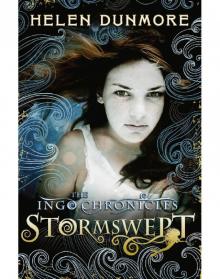 The Ingo Chronicles: Stormswept
The Ingo Chronicles: Stormswept The Deep
The Deep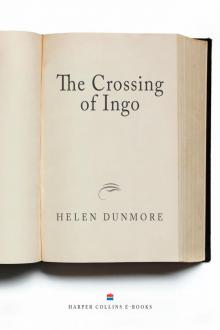 The Crossing of Ingo
The Crossing of Ingo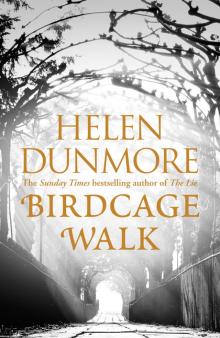 Birdcage Walk
Birdcage Walk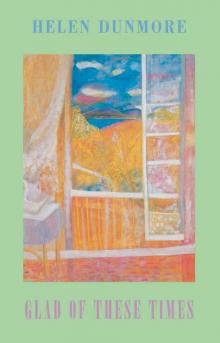 Glad of These Times
Glad of These Times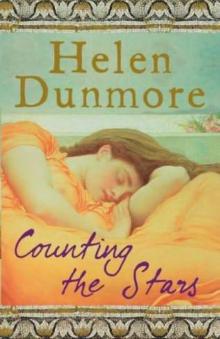 Counting the Stars
Counting the Stars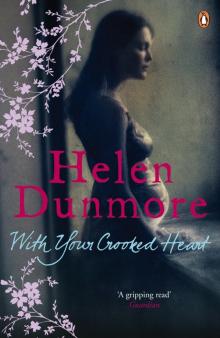 With Your Crooked Heart
With Your Crooked Heart Burning Bright
Burning Bright House of Orphans
House of Orphans Mourning Ruby
Mourning Ruby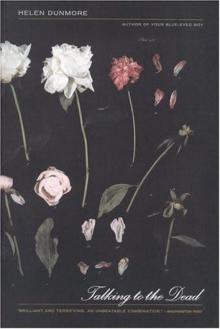 Talking to the Dead
Talking to the Dead Exposure
Exposure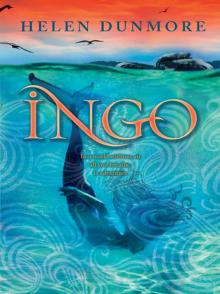 Ingo
Ingo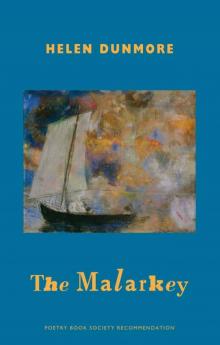 The Malarkey
The Malarkey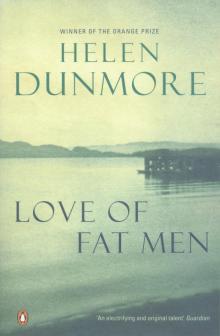 Love of Fat Men
Love of Fat Men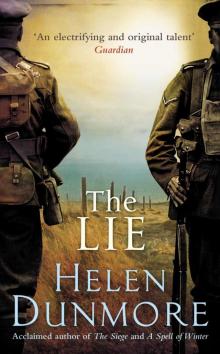 The Lie
The Lie The Siege
The Siege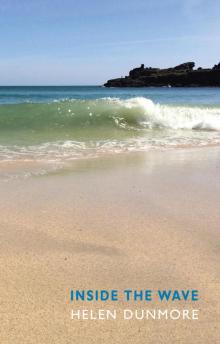 Inside the Wave
Inside the Wave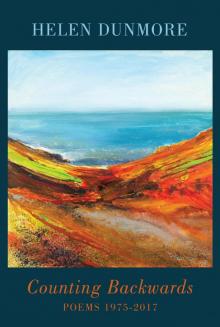 Counting Backwards
Counting Backwards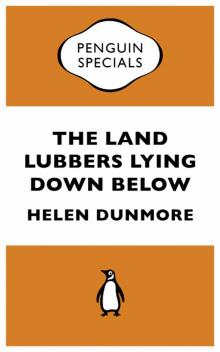 The Land Lubbers Lying Down Below (Penguin Specials)
The Land Lubbers Lying Down Below (Penguin Specials)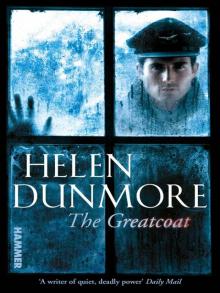 The Greatcoat
The Greatcoat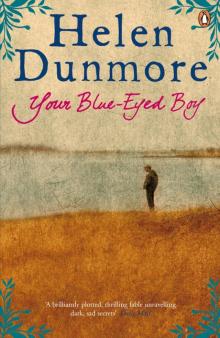 Your Blue Eyed Boy
Your Blue Eyed Boy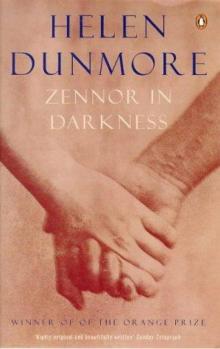 Zennor in Darkness
Zennor in Darkness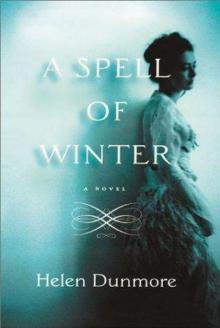 Spell of Winter
Spell of Winter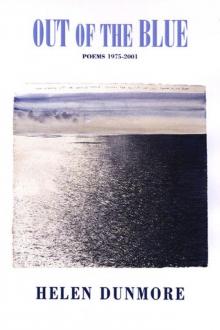 Out of the Blue: Poems 1975-2001
Out of the Blue: Poems 1975-2001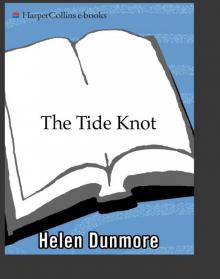 Tide Knot
Tide Knot The Betrayal
The Betrayal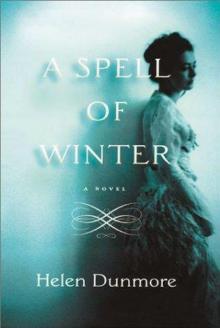 A Spell of Winter
A Spell of Winter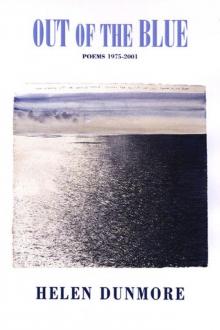 Out of the Blue
Out of the Blue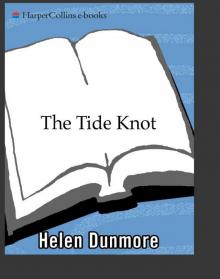 The Tide Knot
The Tide Knot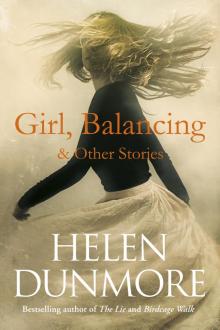 Girl, Balancing & Other Stories
Girl, Balancing & Other Stories Betrayal
Betrayal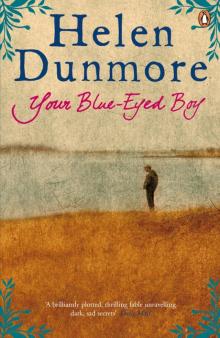 Your Blue-Eyed Boy
Your Blue-Eyed Boy